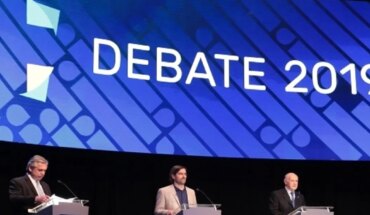
For some years, there has been a strong demand to change the legal framework of philanthropy in Chile. Last month, Magdalena Aninat, Gloria de la Fuente and Carolina Fuensalida published a synthesis on the subject: “Donations in Chile. Analysis of the current legal framework and proposals for its modernization” (CEP, Oct., 2020). The intellectual and political diversity of the authors is the guarantee of a balanced and well-thought-out document. Proposals can only receive broad support: the unification of the legal framework; its best coherence with the status of CSO (civil society organizations); greater transparency of receivers; and all under state control.
The objective here is to complement this analysis with the issue of fiscal support for philanthropy, which the three authors largely omit, perhaps to preserve consensus among them. Indeed, they merely assert that Chile must align itself with OECD fiscal rules, a statement that is surprising, given that situations vary considerably by country. For example, Sweden or Germany provides little support for philanthropy, unlike the United States or France, which have a very favourable tax code.
The initial question is: should the State provide tax support for individual and/or corporate philanthropy? The answer is less natural than one might think.
On the one hand, there are collective advantages to having a richer and more intense social life, with more varied ties, with citizens more personally involved in the common good, without waiting for everything from the state. It is then justified for the State to lend a hand, knowing the positive effects of this externality. On the other hand, it must be recognized that the state’s tax effort is money that is not earmarked for other uses, which means more taxes or less expenditure. The State delegates to citizens decisions for the common good that are beyond the scope of democratic decision-making. Therefore, it is necessary to find the right balance between these two limitations.
Let’s put it right away: in a very egalitarian society, the question does not arise. The problem arises when society is highly unequal, because in reality it is the rich who are helped by the state in its elnemosineary actions. People who do not pay income tax cannot benefit from tax aid, although studies show that they do not necessarily give less in proportion. In particular, they give much more in terms of volunteering, in terms of personal time for wellness purposes. The State helps monetary donation, not the donation of its own person, which therefore has superior social virtues.
The usual answer to this is to be pragmatic: if tax support encourages people, rich or poor, to give more, the state and the community benefit. Then why look for a fight? The answer is just as pragmatic: studies show that the incentive works – the economist is happy – but that it works very weakly – the moralist is also happy. In the U.S., it is estimated that when the state increases its tax aid by 10%, gross donations, including tax aid, increase by only 6% for the richest people (Fack-Landais, 2016, Philanthropy, Tax Policy, and Tax Cheating: A Long-Run Perspective on US data).
There was a “natural experiment” in France when the government opted in 2002 for a more generous tax law. It cost the budget about €500 million; gross donations increased by … €500 million. In practice, it’s as if the state put money in the pockets of the richest, so they can spend it however they want. Hence the question: why does the State not make this same expenditure, but in the democratic framework of public spending? Why does everyone fund the generosity of some? The question has a dimension of moral philosophy that cannot be avoided.
It is to be thankful that the rich realize that their good fortune must go hand in hand with generosity. There was the Giving Pledge launched in the U.S. by Bill Gates and Warren Buffett, a commitment by wealthy signatories to give 50% of their wealth to philanthropy. But it is likely that these two initiators would have given the same without the tax advantage. Andrew Carnegie, the father of modern philanthropy, donated when there was absolutely no tax aid. Rob Reich (Just giving, 2018) reminds us that the state application was late in the U.S., and it was under pressure from the ultra-rics, most recently in the 2017 Trump reform, that the estatus fiscal became increasingly generous.
If we have to change the tax status of donations in Chile, we must be careful not to fall into the excesses seen in the US. There, the phenomenon has acquired spectacular dimensions that remind historians of the evergetism of the very unequal societies of antiquity, in which the rich were honored by the whole community for building temples, bridges or fountains. The gift ends up acquiring a different status; rather than an income to which it is renounced, it becomes a consumption of a higher good, which gives social visibility, personal moral enrichment, varied activities at the time of retirement, etc. More importantly, a consumption for which the community helps out of its own pocket, and which in particular does not pay VAT, so to speak. This is known as warm glow, which is difficult to translate, except as “a glow that warms more to the one it gives than the recipient”. It evokes the feeling of fullness and self-esteem that comes from the act of giving.
Every five years a survey (Richer Lives: Why Rich People Give) is published in the UK, where tax aid to philanthropy is very low. In the 2012 edition, this sober observation from a rich donor is reported: “Sometimes I go to the opera and sometimes I think that the enjoyment of my evening is subsidized by someone who lives in a social housing […], which has no interest in this kind of thing and cannot afford to go anyway, and yet pays the price.” This donor could even be on the board of directors of the opera, being received at the cocktail offered in honor of the singer, so many beautiful side effects.
As far as businesses are concerned, the merits of tax aid for donations are even more questionable. It is perfectly legitimate, against what Milton Friedman said in 1970, for a company to engage in philanthropic shares: customers, employees or shareholders may find it more effective to “give” indirectly through the company than by themselves. For example, the person who wants to help fair trade or fight child labour will be happy if the company to which he buys coffee or shoes does so for them. But who would deny that corporate philanthropy is more often a hidden form of publicity? Today, more than 80% of the corporate communication of banks in Europe and the United States refers to their charitable efforts for climate or culture, although the sums involved are derisory and continue to finance the exploration of fossil fuels.
We can then propose some limits on State tax assistance:
We need a fairly low cap, not more than 5 or 10% of the revenue.
It is preferable that assistance take the form of a tax credit rather than a reduction in the tax base, so as not to favour those with a high tax rate.
It is preferable, as in the United Kingdom, for tax aid to be made in the form of ‘matching’: the individual gives 100 to the CSO, the State adds 25 out of its own pocket. Leverage has been shown to be more important than direct donor support.
We need to find ways to support volunteering, such as reimbursement of some of the expenses of a person who devotes his time to the public good.
Finally, tax support for business donations should be prohibited.
Would such measures impoverish the CSO that we are trying to develop? Not necessarily. First, municipalities, regions and central government also directly assist CSO, on the basis of democratic options, and can do so to a greater extent. Second, donation is also a cultural issue, a convention that is gradually being established. If we always ask the state for help, it is because we are getting used to the state helping. Give until it hurts… but not so much! Fiscal support should not be transformed into a process where the richest citizen “votes” on which public funds should be allocated, as the censer vote was abolished in 1925.
The content poured into this opinion column is the sole responsibility of its author, and does not necessarily reflect the editorial line or position of El Mostrador.





